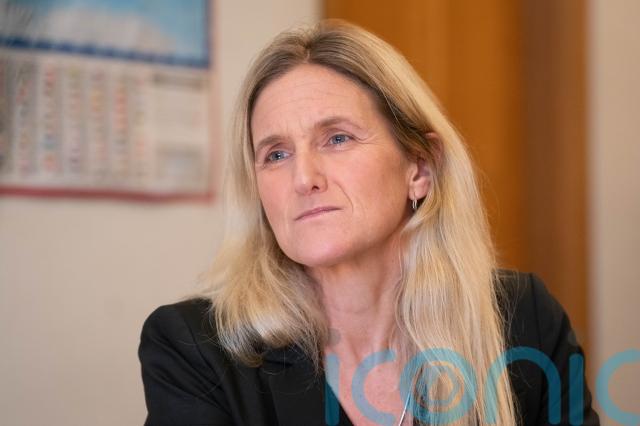
Medical professionals insist “greater clarity” is needed about Bills at both Westminster and Holyrood that would legalise assisted dying for terminally ill adults.
The Royal College of Physicians and Surgeons of Glasgow spoke out after surveying members across the UK on the practicalities of implementing assisted dying, should the legislation be passed.
While the medical body adopts a neutral stance towards assisted dying, of the 635 medical professionals surveyed, almost half (49%) said they were either opposed to this, or were leaning towards opposing the change – with two fifths (41%) saying they support it, or were leaning towards supporting it.
However three fifths of those surveyed (59%) said that assessing if a patient was voluntarily requesting help to die, and was not being coerced into this, could pose a “major challenge”.
Almost half (48%) said assessing a patient’s capacity to request an assisted death could also be a “major challenge”.
Meanwhile 45% said they had “major concerns” about how terminal illness is defined in MSP Liam McArthur’s Assisted Dying for Terminally Ill Adults (Scotland) – with 40% having “major concerns” about this in MP Kim Leadbeater’s Bill, which would apply in England and Wales.
Physicians, surgeons and dental surgeons all took part in the research, along with GPs, nurses and allied health professionals.

It comes as a record number of amendments means that further time has had to be scheduled in the House of Lords for Ms Leadbeater’s Terminally Ill Adults (End of Life) Bill.
Meanwhile Mr McArthur’s Bill finished its second stage at Holyrood this week, with MSPs on the Scottish Parliament’s Health Committee having debated almost 300 proposed changes. A final vote on the proposals is now expected to take place early in 2026.
Dr Morven McElroy, honorary secretary at the Royal College of Physicians and Surgeons of Glasgow, said: “As a college, we have a neutral position on the principle of assisted dying.
“However, with two Bills currently under discussion, it was important for us to ask our members for their views on the practicalities of implementing the Bills should they become law.”

She continued: “While doctors and healthcare professionals have a range of views on the principle of assisted dying, all are deeply concerned for the wellbeing of their patients.
“The survey has shown that if the Bills were to become law, there is a strong need for greater clarity to protect both patients and doctors.”
Dr McElroy said: “Respondents to the survey were particularly concerned about the challenges of assessing whether a patient has made their decision voluntarily, and their capacity to make that decision.
“They also told us that greater clarity would be needed on the role of the clinician and their right to choose whether to take part in an assisted dying service, along with safeguards for people with disabilities and current workforce preparedness, and the impact on palliative care services.”
She added: “These are complex issues that require particularly careful consideration and discussion.”
Liam McArthur MSP said: “I thank the RCPSG for their work on assisted dying and am pleased to note that a significant number of clinicians who took part in the survey are supportive of my Bill.
“I am also reassured that the numbers of those willing to participate would ensure that terminally ill adults in Scotland who wished to make this choice would be able to do so and was especially struck that respondents who were willing to participate stated that assisted dying is inherently part of healthcare in ‘enabling access to a safe and dignified death’.
“I note that the survey took place ahead of the Health, Social Care and Sport Committee’s Stage 2 scrutiny of my Bill.
“The Committee accepted many amendments which directly address some of the issues raised by the RCPSG.
“These include clarifying that a person is not terminally ill only because they have a disability or mental disorder, that doctors can request input from health, social care and social work professionals involved in the care of a patient when considering if a person is eligible and that Scottish Ministers can determine the level of training, qualification and experience a registered medical practitioner or registered nurse must have.
“Additionally, the Bill now contains provision that ensures there is no detriment to those for participating or not participating and a “no-duty to participate directly in assisted dying” clause for health care professionals.
“Alongside the training that any health care professional will complete in order to undertake assisted dying provision, this has the effect of creating an ‘opt in’ system rather than it being the responsibility of medical professionals to ‘opt out’.
‘I am confident that these measures will reassure clinicians that the Bill, which offers the choice that a small number of terminally ill Scots desperately need, puts in place not only greater compassion and choice but also more safety and protection that exists now.”
Ms Leadbeater has been contacted for comment.
Subscribe or register today to discover more from DonegalLive.ie
Buy the e-paper of the Donegal Democrat, Donegal People's Press, Donegal Post and Inish Times here for instant access to Donegal's premier news titles.
Keep up with the latest news from Donegal with our daily newsletter featuring the most important stories of the day delivered to your inbox every evening at 5pm.